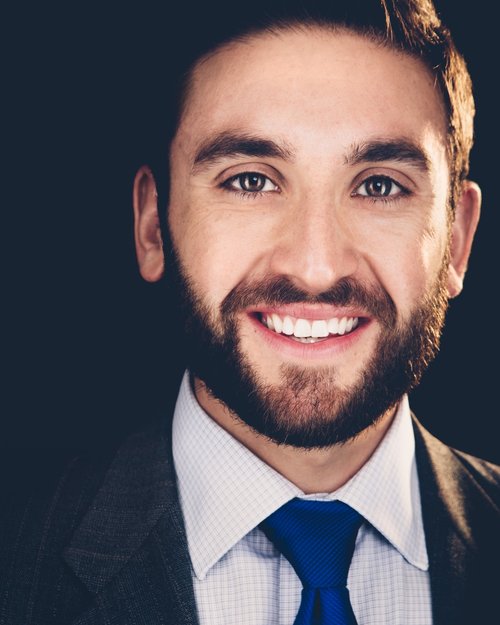Meet Nate Widelitz, Visiting Instructor of Choral Music Education
Professor Nate Widelitz, the new Visiting Instructor for Choral Music Education.
After the departure of Dr. Brad Holmes and Beth Holmes from the Millikin choral department, and the subsequent promotion of Dr. Benjamin Hawkinson to Director of Choral Activities, it was clear an additional director would be necessary to fulfill directing duties in the choral department. After a semester with Dr. Kiernan Steiner as the director of Collegiate Chorale and Treble Choir, a new professor was hired: Nate Widelitz, Visiting Instructor of Choral Music Education.
“My first contact with Millikin was when they performed at an ACDA convention,” said Widelitz, who received a Master’s in Conducting from Yale. “Dr. Holmes took the University Choir there and it was very, very impressive. So that sort of put it on my radar, and then I was, of course, on the job market this spring, and I saw that the position was opening up, and so I was very eager to apply…And from there, things progressed, so of course I was here in early June, and the rest is history.”
Professor Widelitz has several years of conducting experience under his belt, including as Director of Vocal Music at Blair Academy and Assistant Conductor of Pacific Chorale at Mt. San Antonio College.
“I think I bring fresh ways of looking at music. I think I bring a lot of passion to what I do. I do think I have good musical taste, if I do say so myself. And I think people can really look forward to not only having a good experience putting together music and performing it, but also understanding how music functions within a cultural context and within society. Thinking about music is one of my favorite things to do, and I like to encourage that thinking whenever and wherever I can, because it’s one thing to simply enjoy the experience of making music for enjoying it, and it’s a very very important thing, but I find that it also quite enriching beyond that to think about where it all comes from and what effect it has.”
According to Forbes, total postsecondary enrollment was down 4.2% from Spring 2021 to Spring 2022. With such drastic numbers as these, it’s clear Millikin will need to adjust its strategy in order to attract prospective students and face the challenges of a post-COVID world. Professor Widelitz is ready to face these challenges head-on.
“I would really love to create a community here, in every sense of the word. Which, of course, is…it’s not even secondary to creating musical excellence, it’s equally important, I think. Of course, we want to continue to be one of the gems of the University…We want to continue being that, and to have it be an attraction to the University. Of course, the elephant in the room is that college enrollments, everywhere, are down. So, the choral program, of course, can go a long way towards helping Millikin, in particular, weather that storm by continuing to attract top-tier talent to the school.”
As far as what he hopes to accomplish during his time at Millikin, Widelitz emphasized the importance of programming music outside of the traditional choral music canon.
“I love programming music by composers who are not necessarily front-and-center in the choral world right now. I hate to use the word obscure, because it has such negative connotations, but there are so many good composers out there who write really excellent music that no one knows about. And those are the kinds of composers whose music—whose excellent music—I’d like to program.”
Widelitz also recognized the difficulty of repairing the social structures that were strained by the pandemic.
“We’ve replaced so much of our face-to-face interaction, with all kinds of people, with electronic interaction with people who are only just like us. And, of course, when we all had to retreat inside to our computers for a year…that really, I think, I’ve observed, served to silo us and it’s had a really devastating effect on the social bonds that we need to have to function as a society. So, one of the things that’s at the forefront of my mind is using choral music to begin to heal those divides and to bring us back together. Of course, that goes far beyond the educational curriculum, but that is a big part of what I’d like to accomplish here.”
Overall, it’s clear that Widelitz shares not only the passion of choral students, but also their desire for a greater sense of compassion and community.
“I recognize that I’m coming to Millikin at a time of great transition—for the choral program, of course, but also for the University at large, for our society. And of course, it’s a time of transition in all of your lives, too, being of college age. So as I do this work, and as I get to know everyone, I certainly feel the weight of having the responsibility of leading in a way that guides us all through the many kinds of transition that we’re experiencing, that makes the choral program better in a way that is authentic to me, and that is sensitive to the needs of the program as a whole, of the University as a whole, and of all of your as individuals. I feel really honored and humbled to have that task, but it does feel like a weighty one at times. I’m excited, I’m a little nervous, but I just really feel strongly about the work that I have in front of me, and I just hope to do the best that I can to honor all of that.”

Mason Hoyt is a senior Commercial Music major with a Theatre minor. They are the 2022-2023 Arts Editor for the Decaturian. Mason won Best Column at the...

